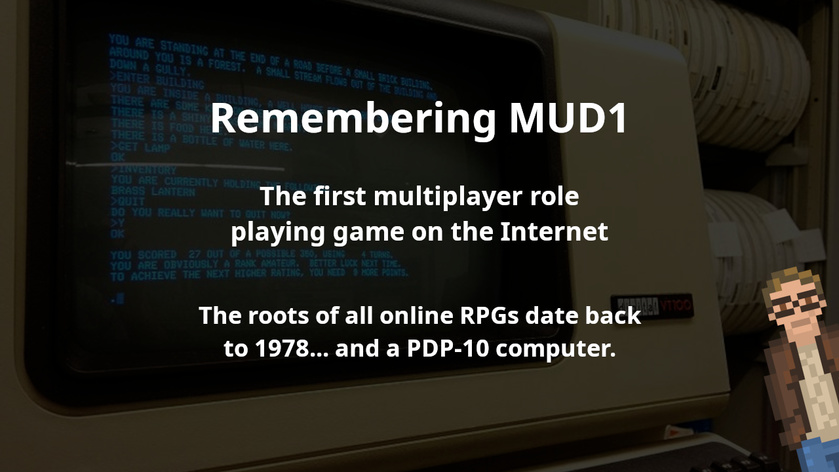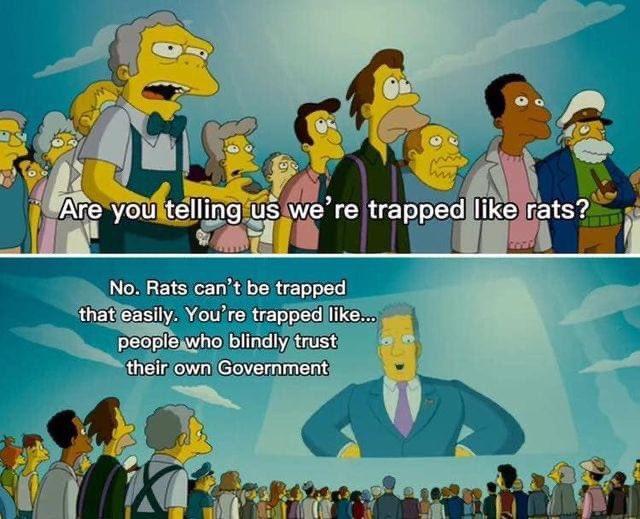MUD -- Also known as a "Multi-User Dungeon", is a multiplayer, real-time, text-based virtual world and game. Often played via Telnet orr SSH.
Let’s take a little stroll back to the 1970s… as we explore the history of the very first MUD — and, in fact, the very first multiplayer, online role playing game on the Internet: MUD1
The Inspiration
To truly understand MUD1 (the game which spawned the entire genre of Multi-User Dungeons), we need to go back to 1976 and the release of the first text adventure game: “Colossal Cave Adventure” (or simply ADVENT as it was known), developed by William Crowther.
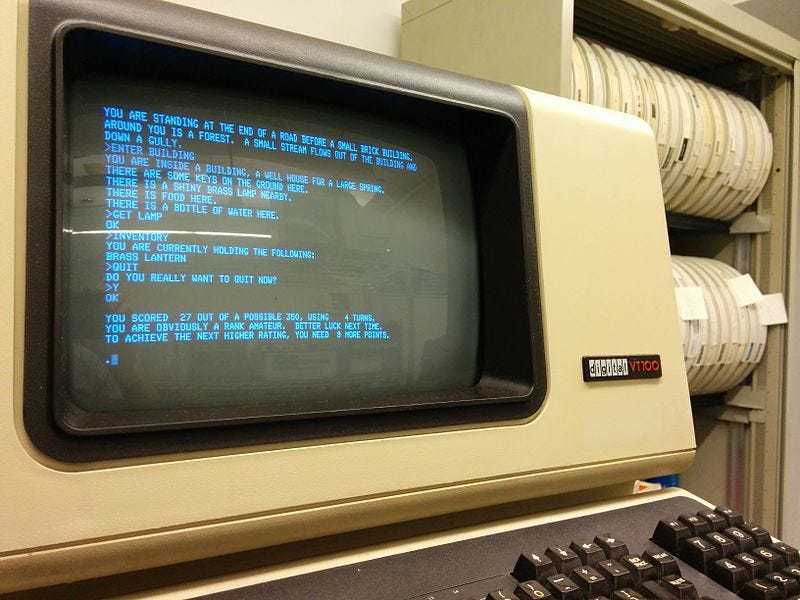
ADVENT was such a hit, that another group of developers at MIT (Dave Lebling, Marc Blank, and Tim Anderson) started a new game. Their goal was to expand on ADVENT. Better map. Puzzles. Dungeons and Dragons inspired combat. And a more advanced text input system.
That game, in 1977, was named “Zork”.
Fun side-note: The word “Zork” meant absolutely nothing. It was a made up, nonsense word used as a placeholder for the project. This was common practice at MIT. Before the game was complete, the team changed the name to “Dungeon”. After being released as “Dungeon”, the company that owned Dungeons & Dragons (TSR) got ahold of the developers and requested they not use the name. At which point the name of the game was changed back to Zork. And that’s how it stayed.
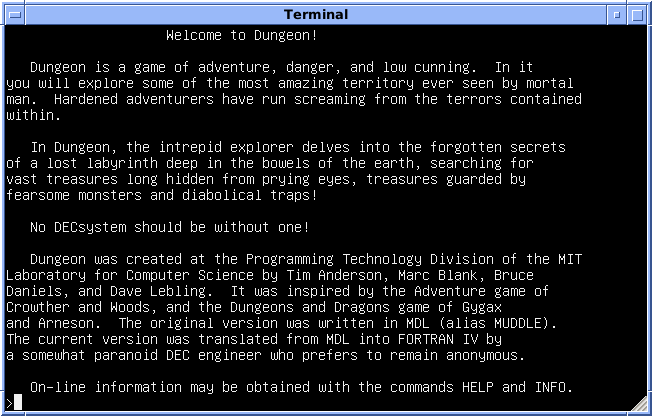
The Creation of MUD1
In 1979, two men over in Britain, at the University of Essex, started playing Zork (or, rather, “Dungeon” before the name was changed to “Zork”): Richard Bartle and Roy Trubshaw.
This game gave them the inspiration to create something similar… but multiplayer.
This game was known simply as “Multi-User Dungeon” (as, in a way, it was a “Multi-User” system that was a bit like the game “Dungeon”)… or MUD, for short. In later years it would be referred to as “MUD1” to more easily differentiate it from the growing category of “MUD” games.
According to the official account by Richard Bartle:
“The very first MUD was written by Roy Trubshaw in MACRO-10 (the machine code for DECsystem-10's). Date-wise, it was Spring 1979. The game was originally little more than a series of inter-connected locations where you could move and chat. I don't think it was called MUD at that stage, but I'd have to ask Roy to be sure. Roy rewrote it almost immediately, and the next version, also in MACRO-10, was much more sophisticated. This one was definitely called MUD (I still have a printout of it). The database (ie. the rooms, objects, commands etc.) was defined in a separate file, but it could also be added to during play. However, the result was that people added new rooms that were completely out of keeping with the rest of the environment, and, worse, added new commands that removed any spirit of exploration and adventure that the game may have had.”
At which point — around the spring of 1980 — Richard Bartle took over development from Roy Trubshaw:
“I had been helping Roy with the game-side of things for some time, starting with suggestions for version 1. Roy was mainly interested in the programming side of things, rather than the design of rooms, puzzles and so on. When he left Essex, I took over full control. At that point, there was no objective for the players, and only primitive communication. There was no points-scoring system, there were no mobiles, no containers, and even some of the infrastructure was missing (eg. two people in a dark room, one with a torch: the other still couldn't see). In terms of lines of code, Roy gave me about 25% of what was in the final program (mind you, it was the most essential 25%!). I added all the stuff about getting to be a wizard (which was previously 'debug mode' so implementors - Roy and I - could test out new room complexes we'd added.
Fun bit of trivia: Note how he describes himself as an “implementor”? This was true with the development of Zork/Dungeon as well. In fact, the small team working on Zork often referred to themselves as “imps”… for short.
Looking back on the original MUD, Roy describes the distribution of work thusly:
“Although Roy had written the basis of the system, it wasn't really a game, nor was it completely usable. Sometimes, the implication is given that I merely modified his program, or tidied up a few loose ends, whereas actually I wrote most of it (and unwrote some of it!). At other times, there's the suggestion that Roy just knocked together a basic shell devoid of anything really original or interesting; again, that's incorrect - Roy pioneered MUD programming, and had to design everything from scratch. So the writing of that first MUD was basically a team effort, and the way Roy and I expect to see it described is "MUD was created and written by Roy Trubshaw and Richard Bartle at Essex University in the UK", or words to that effect.”
By early 1980, the first trans-Atlantic, Internet, Role-Playing gaming session occurred:
"At this time, there was an experimental packet-switching system (EPSS) linking Essex University to ArpaNet in the USA. In Spring 1980, we got our first few external players logging in and trying the game out.”
This is a map of the original MUD1 (as drawn by a fan and published in the early 1980s):
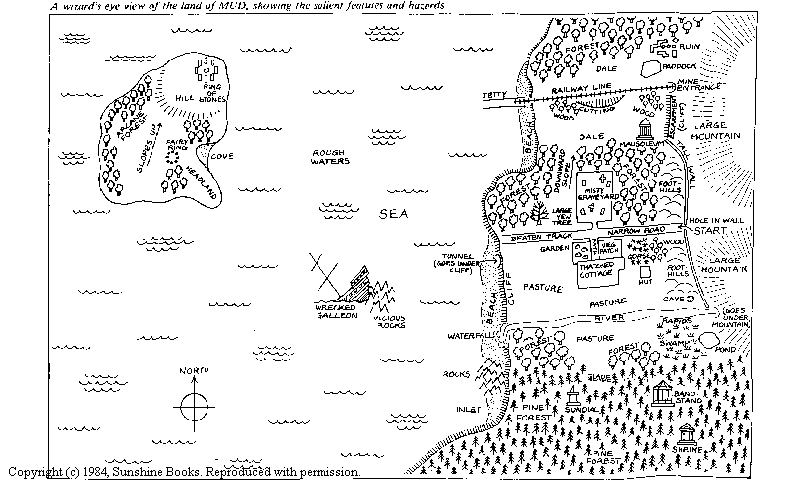
That really takes me back. I recall drawing so many similar maps for other types of MUDs (many of which I played on local BBS’s). Some serious childhood memories there.
MUD1 becomes “British Legends”
In 1987, Richard Bartle struck a deal with CompuServe to bring MUD to their network. The original MUD server shut down, and the CompuServer version was launched… under a new name: “British Legends”.
In fact, British Legends is still technically accessible. Though, I’ve found the connection tends to drop regularly… making game play extremely difficult.
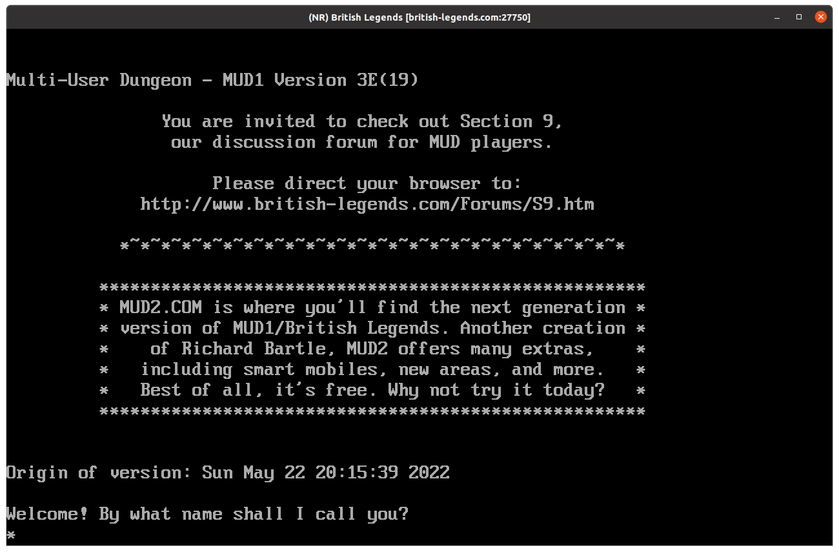
The Full Source Code
What’s more… the entire source code for MUD1 was released publicly in recent years.
You can find the full source code for MUD1 over on GitHub, including instructions on how to build it on a PDP-10.
MUDs live on!
Many MUDs are still going strong. Including games like Stellar Aeon:
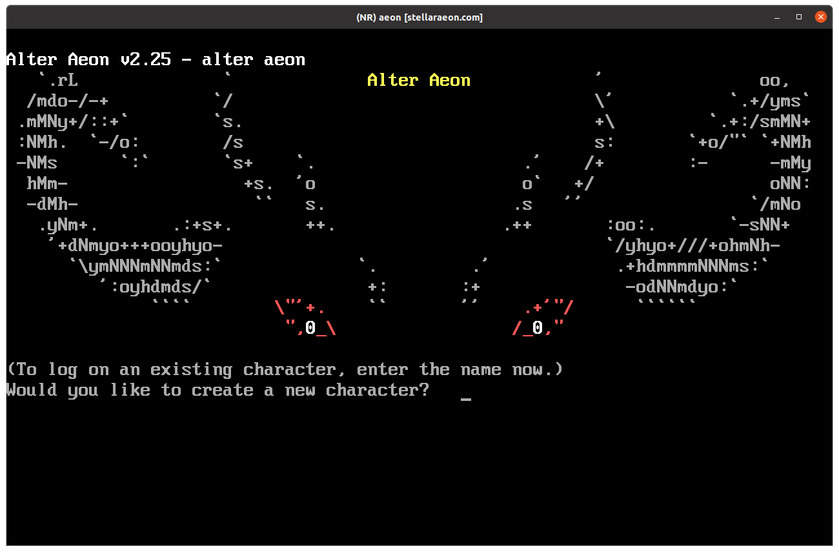
And, on many Bulletin Board Systems, there is even one called “Door MUD”:
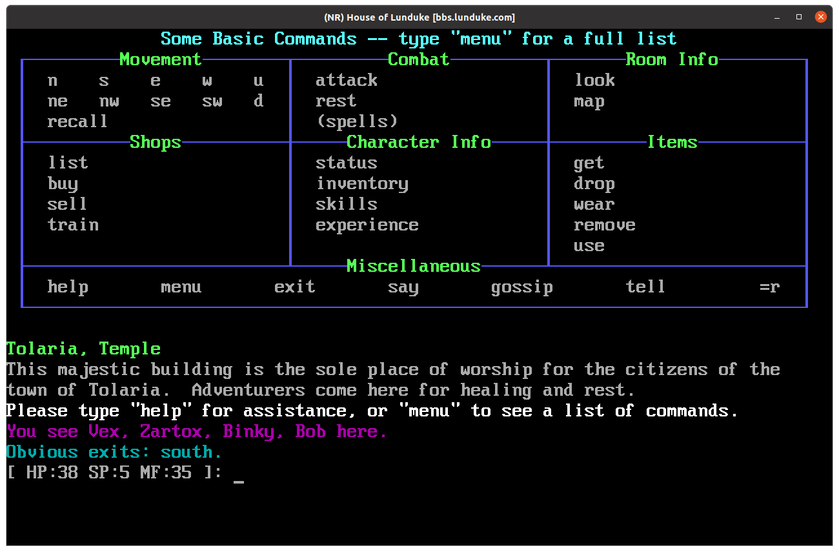
Considering that we are over 40 years since the creation of MUD… I’d say we’re not likely to see these sorts of games go away (at least not completely) any time soon…
